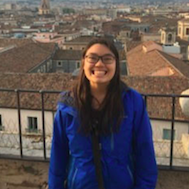There is a strong relationship between educational advances and communities being lifted out of poverty. In the case of Guatemala during the COVID-19 pandemic, this link has manifested itself much more directly.
Clothes washing in Quetzaltenango. Lon&Queta. CC BY-NC-SA 2.0.
Guatemala, boasting a distinctly Mayan heritage and a landscape peppered with volcanoes, offers an inspiring experience to the open-minded traveler. However, despite the bright and bustling aspects of the nation, a substantial portion of Guatemala’s residents live in poverty. Standing as the fifth-poorest country in Latin America, Guatemala has taken a particular hit with COVID-19 regulations restricting economic functions. In addition, Guatemala has the sixth-highest rate of chronic malnutrition in the world; nearly half of the population of children suffers from stunting due to malnourishment. The statistic increases notably in rural areas with a malnourishment rate reaching 70%.
The COVID-19 pandemic has only aggravated the poverty predicament, with Indigenous populations facing the bulk of the damage. The government has fallen dramatically short on providing health care and financial support, causing the creatively resilient Guatemalan people to snap into action. In Quetzaltenango, resident Bonifaz Díaz has created an innovative method to provide support to his neighbors in need: he set up a book-barter system. Every day, Díaz bikes with hefty sacks of books donated to his organization, 32 Volcanoes, and trades them for food donations from food secure families. Although a simple concept, this has been no easy task. The arduous job surely keeps Díaz in shape; he has cycled over 1,200 miles feeding families, and has traveled as far as 37 miles for a single delivery.
Stay-at-home orders have diminished the town’s morale, but Díaz is determined to hold up hope. The number of children supported by his project has tripled during the pandemic, but luckily two more bikers have offered their help. Most families offer a bag of Incaparina, an inexpensive but protein-packed cereal mix made from corn and soy. A bag provides about a week’s worth of servings, but the low price point is still out of reach for many. About 97% of residents live on a dollar a day or less, so even cheap food made to fight malnourishment cannot completely solve the problem. The bright-red Incaparina bags are commonly the only source of nutrients on families’ shelves, but it has proven to keep malnourishment at bay for some.
By creating a system that allows families to benefit themselves while helping others, many hope that this program will continue to bear far-reaching results. The poverty problem cannot be solved by a single person or fixed in one day, but with every resident lending a hand, considerable headway can be made.
Ella Nguyen
Ella is an undergraduate student at Vassar College pursuing a degree in Hispanic Studies. She wants to assist in the field of immigration law and hopes to utilize Spanish in her future projects. In her free time she enjoys cooking, writing poetry, and learning about cosmetics.





